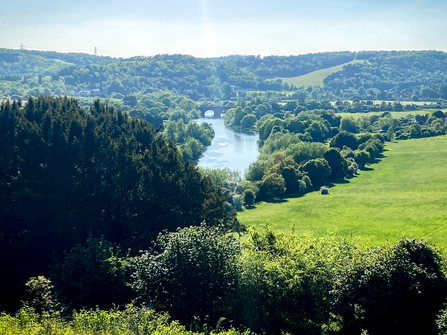
The view of the River Thames from BBOWT's Hartslock nature reserve in South Oxfordshire, photographed by Jon Mason, aka TheEarlyBirder
Help bring back nature

The view of the River Thames from BBOWT's Hartslock nature reserve in South Oxfordshire, photographed by Jon Mason, aka TheEarlyBirder
Perched above a bend in the Thames near Goring, Hartslock boasts one of Oxfordshire’s most iconic views, and one of its rarest flowers. The steep chalk slopes here are home to a thriving population of monkey orchids, which bloom in mid-May and are found in only two other places in the UK. Incredibly, Hartslock is also the only site where a natural hybrid of the monkey and lady orchid has been recorded. No parking is available onsite, so enjoy a short scenic walk from Goring along the Thames Path to get there.
Access: Steep slopes, firm paths, long flight of steps
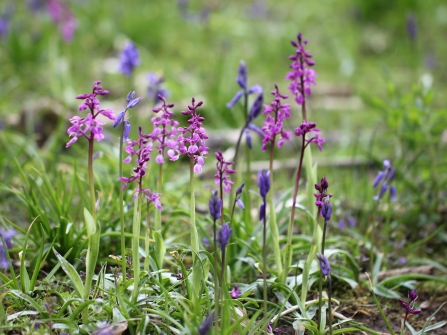
Early purple orchids with bluebells by Jim Higham
Hidden in a quiet Chilterns valley near Henley-on-Thames, Warburg is a place of serenity and seasonal splendour. In May, early purple orchids and carpets of bluebells fill the ancient woodland, while butterflies dance across the sunny chalk grasslands. Red kites soar overhead, and bird song fills the air.
Access: Variable, mostly steep paths and loose flint, flat grassy path; muddy in valley bottom after rain; benches.
A mobility Tramper vehicle is available to hire Tuesday-Thursday, subject to staff availability. Please email warburg@bbowt.org.uk or call 01865 788311 to book in advance.
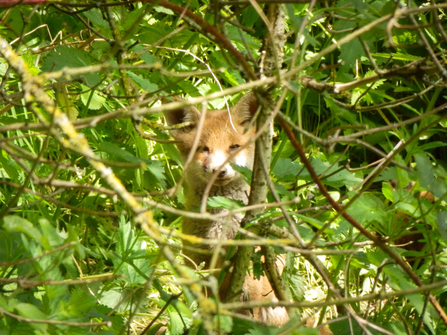
A fox cub at BBOWT's Dancersend nature reserve near Aylesbury. Picture: Mick Jones
In this tranquil Chiltern valley near Tring, spring arrives in waves — first the bluebells and primroses, then the fluttering butterflies of early summer. Dancersend’s ancient woodland glades and wildflower meadows support rare species like the chalkhill blue and the elusive wood vetch which is found nowhere else in Buckinghamshire. Book a guided walk on Saturday 3 May to learn how BBOWT is transforming former farmland into a flourishing wildlife habitat.
Access: Variable, gentle slopes, bumpy in places; gates; benches.
Visitor permit required for 'Water Works' part of reserve. Please contact us on 01865 775476,
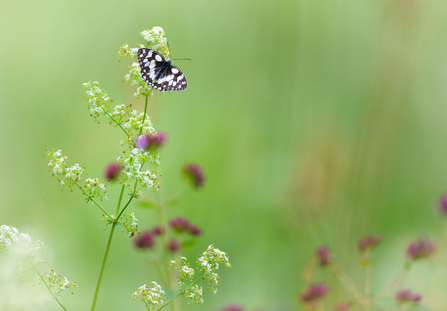
Jon Hawkins - Surrey Hills Photography
Just a few minutes’ walk from Wendover Woods, this small but ecologically rich reserve bursts with life in spring. Eight species of orchid and over 25 butterfly varieties have been recorded here, making it a perfect choice for nature lovers. Visit on Sunday 25 May to join a guided walk with the warden and gain deeper insight into this abundant chalk grassland habitat.
Access: There is a network of smaller paths that visitors are free to explore. Short, steep slopes; some loose stone; steps.
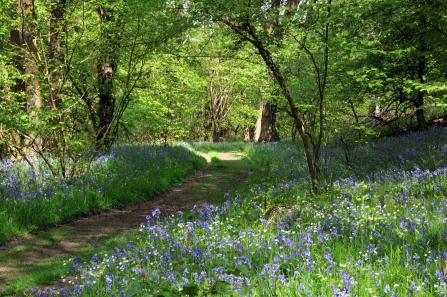
Bowdown Woods by Rob Appleby
This complex of woodlands near Newbury is a feast for the senses in May. Ancient trees and woodland flowers, including sweeping bluebell displays, line paths that rise and fall through three distinct areas: Bowdown, Baynes and a historic Bomb Site. The mix of damp valleys and drier slopes supports a wide range of birds, butterflies and spring blooms. A circular six-mile trail links the reserve with nearby countryside for those seeking a longer escape. Explore this part of the West Berkshire Living Landscape on Wild Walk One.
Access: Variable, the reserve is made up of 3 areas.
Baynes: steep slopes, uneven underfoot, long flight of steps and a boardwalk
Bomb Site: flat and surfaced, accessible for robust mobility scooters and robust wheelchairs
Bowdown: gentle slopes, soft after rain
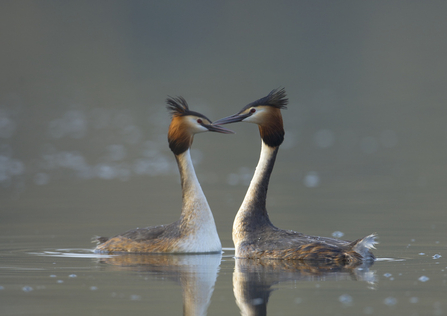
Great crested grebes © Andrew Parkinson/2020VISION
On the edge of Twyford, Loddon Nature Reserve is a peaceful 14-hectare site transformed from a former gravel pit into a vital wetland habitat. The reed-fringed lake and surrounding scrub are a magnet for wildlife in spring, especially breeding wetland birds. Look out for great crested grebes performing their elegant courtship dances, and listen out for the call of reed warblers hidden among the reeds. Islands in the lake provide safe nesting sites for species like common terns and oystercatchers, while the surrounding vegetation attracts blackcaps, whitethroats and other summer migrants. As dusk falls, bats skim low over the water in search of insects, making this reserve a serene spot for wildlife watching at any time of day.
Access: Flat; gate, boardwalk